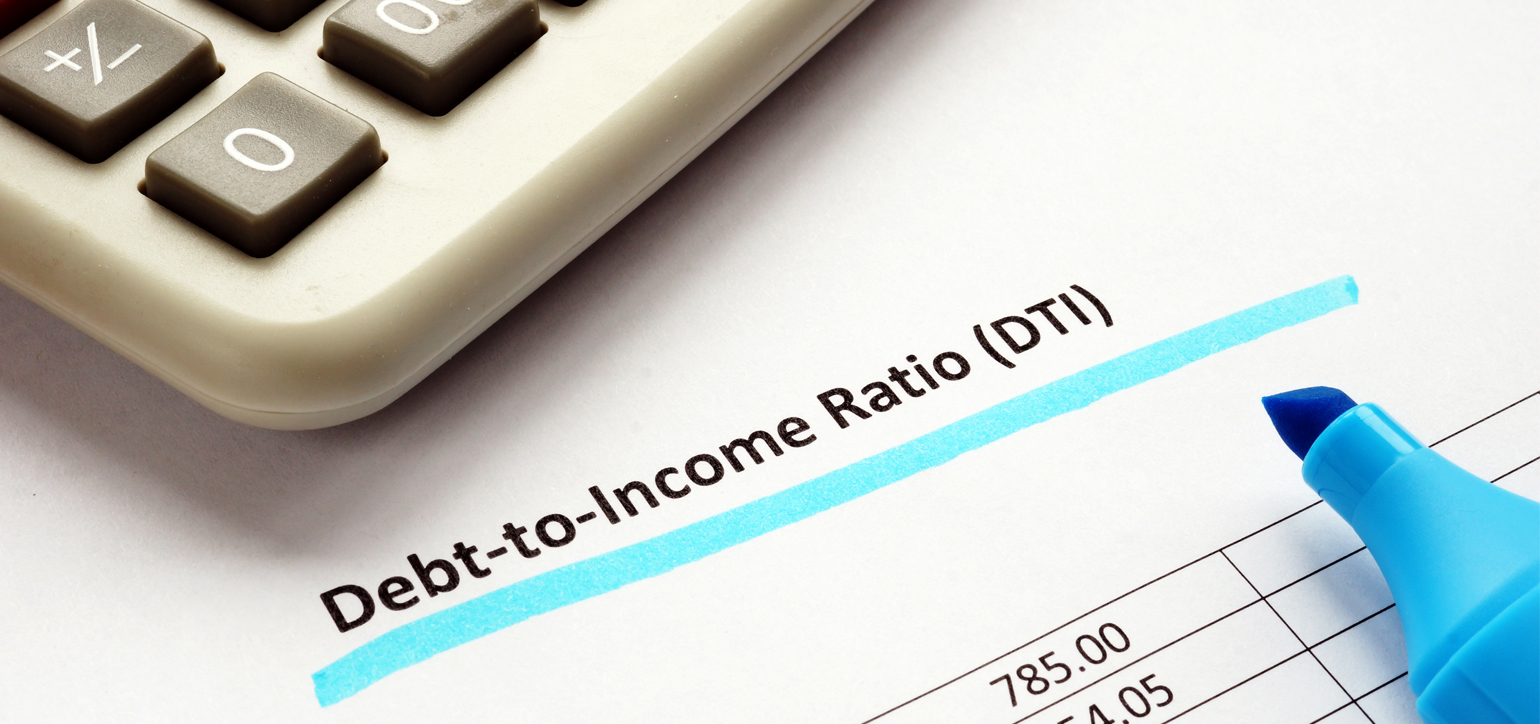One of the ways a broker will determine whether you’re eligible for a mortgage is by looking at your debt-to-income ratio. This is part of your mortgage affordability assessment, and it helps them check whether you would be able to keep up with your mortgage payments.
What is a debt-to-income ratio?
The debt-to-income ratio (DTI) shows how much of your monthly earnings is eaten up by recurring debts. The word ‘debt’ can be confusing and in this case, it covers many, but not all, monthly payments that take away from your spendable income. Examples include loans, rent, overdraft, mortgage repayments, credit card payments, child support, council tax, debt management and so on. On the other hand, mobile phone contracts, utility bills and subscriptions like Amazon and Netflix don’t count towards your debt.
How to you calculate your debt-to-income ratio
To calculate your DTI ratio, you’ll first add up all the payments that go out of your account each month and insert it into a simple equation. Say your total debt adds up to £600 a month.
Next, calculate your gross monthly income - this is how much total money you make before tax and other withdrawals. This includes your monthly salary and any additional sources of income, such as bonuses, tips, income support, child support, benefits or tax credits.
If you have an annual salary, divide it by 12. If you are paid weekly, multiply it by 4.3 and if you are paid daily multiply your day rate by 22. Let’s say your gross annual salary is £30,000 which, divided by 12, works out to £2,500. If we were to also make an additional £300 each month from bonuses, your total would be £2,800.
To calculate your DTI ratio, divide your recurring debt by your monthly income and multiply by 100 to get a percentage. If your total debt is £600 and monthly income is £2,800: £600/£2,800 = 0.21 x 100 = 21%.
How does my debt-to-income ratio affect my mortgage eligibility?
The lower your DTI is, the more deals will be available to you because you pose less of a financial risk to lenders. People with a 50% or higher DTI are high risk borrowers. Some lenders will be willing to accept higher risk applications, but they will often require a higher deposit and the deal will be less favourable. If you have a 20-39% DTI, you are likely to get a standard deal as long as there are no obvious red flags.
How can I improve my DTI?
If you’re worried about having a higher DTI, the first thing to do is check your credit score as this impacts your mortgage eligibility. You can also look at ways of paying off or reducing your monthly debts, for example paying off an overdraft or credit card.
For tailored advice for your specific circumstances, us our advisers on 0345 450 4660.
YOUR HOME MAY BE REPOSSESSED IF YOU DO NOT KEEP UP REPAYMENTS ON YOUR MORTGAGE










